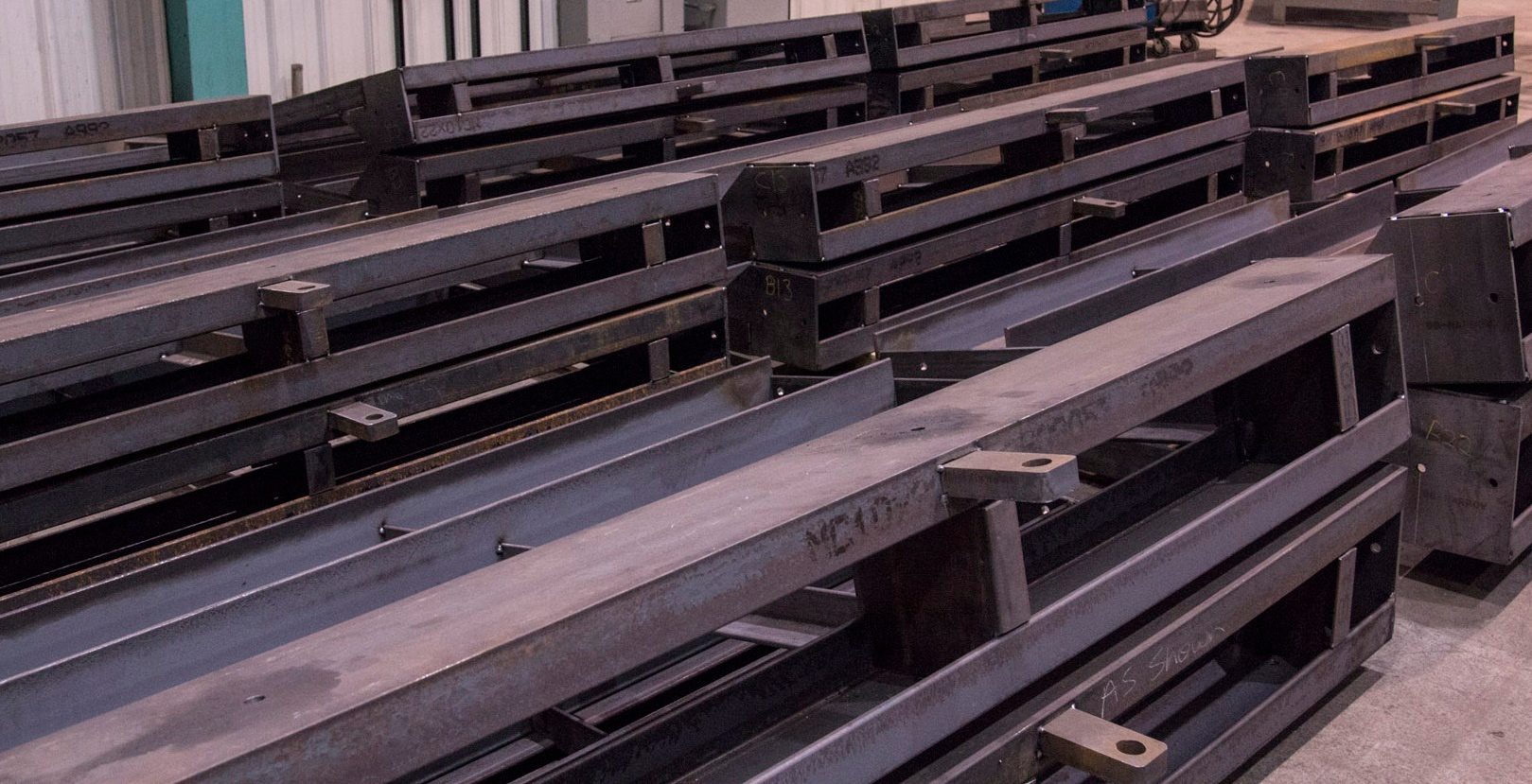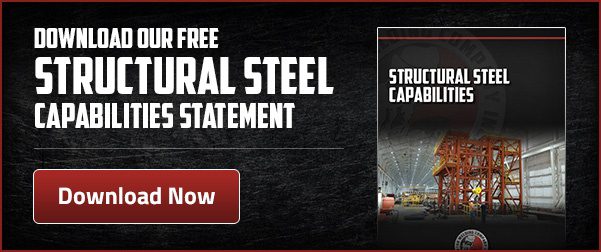Sustainable Construction and Structural Steel Fabrication
Structural steel has many advantages over other commercial building materials, but one of the primary benefits for many construction companies looking to reduce their environmental impact is the sustainability aspect of it. Sustainability in construction is a hot topic and one that will invariably be discussed during the design process. The environmental impact of the materials, along with the longevity of the build, are both considered in sustainable construction. Framing with structural steel is important in “green” design, as it is long-lasting, highly recyclable, and can reduce overall energy consumption. Using structural steel is not only about creating a highly durable structure, but is great for the environment as well.

Structural Steel is a Sustainable Choice for Construction Projects
Sustainability is a concern in construction projects, and structural steel is the right choice for builders who are looking to move in the direction of sustainable structures and away from designs that require a large amount of materials that cannot hold up and will need to be replaced often. With the strength-weight ratio of structural steel, less material can be used for superior support.
One of the biggest drawbacks of other materials is wastage from unusable components. In structural steel fabrication, particularly in customized components, waste is almost non-existent. Structural steel contributes to a very efficient building process, often requiring less manpower while still having a faster timeline. This reduces necessary resources on the whole, and makes structural steel a more cost-effective choice. Structural steel is less expensive to use, is lighter and stronger than other options, and the longevity and dependability influence the overall return on investment in the construction process. Even when the design is modified, there is very little waste material when using structural steel.
Stainless steel has inert, non-reactive qualities that have high safety ratings, posing little health concerns for those who work in the manufacturing and construction processes. Because of the cleanliness of structural steel, the environment in which they are constructed can also stay clean and healthy with no harmful outputs.
Structural Steel Fabrication Makes Use of Recycled Materials with Less Waste
One of the primary reasons structural steel is considered to be such a key material in sustainable construction is its high degree of recyclability. Steel is the most recycled material globally, with manufacturing companies able to recycle steel components to almost their full original weight. There is almost no waste material when recycling and reusing structural steel components. Steel is uniquely recyclable because no degradation occurs during the recycling process. Steel can be melted down and reused an infinite amount of times without any compromise to the integrity of the material.
In addition, the water used during steel production, which is necessary for cooling, cleaning, and descaling, can also be reused. Although the water may be contaminated during steel fabrication, the impurities can be removed through filtration, allowing nearly all of the water to be reused. Slag, another by-product of steel production, was once one of the highest waste products in the steel industry, but now can be repurposed for use in concrete, reducing waste and creating stronger concrete.

Structural Steel is Long Lasting
Building with structural steel is one of the best ways to ensure that the structure will last. Structural steel has the ability to withstand high winds, precipitation, fire, earthquakes, and insects. Structural steel will not rot, crack, split, or warp, and is designed to be resistant to rust and corrosion. With structural steel lasting so long, it is able to reduce the impact of using new raw materials for further construction and will not impact the environment or require additional resources. Once you have built with structural steel, you will likely not need to rebuild. Steel posts, columns, beams, and channels are all designed for maximum durability. When considering the longevity of structural steel, it can be considered even more sustainable and eco-friendly in the building industry.
The Steel Industry is Eco-Friendly
Steel framed construction is considered energy-efficient in all climates. The strength of steel contributes to better insulation, increases air quality within the structure when compared to other building materials, and reduces humidity. These advantages mean that energy use within the structure, in terms of heating, cooling, dehumidifying, and air purifying can all be reduced, lowering not only energy costs, but also carbon emissions.
In addition, during the manufacturing, recycling, and fabrication process, steel is consistently reducing total carbon emissions. Many steel manufacturers and fabricators have moved from blast furnaces toward electronic arc furnaces, which reduce total carbon emissions substantially. As equipment and technology in the structural steel industry continues to advance, these emissions will be reduced even further.
Structural steel is a uniquely sustainable material for construction. It is the optimal choice in many different industries and for many different structures. When you are working on a construction project, using structural steel is one of the most environmentally conscious decisions you can make. When looking for a structural steel fabrication team to create the steel components needed for your construction, there are many experts who can ensure you are working with highly durable and low waste recycled steel products to help demonstrate your commitment to the global environment. Assuring your clients that you are providing them with the strong, durable, and environmentally friendly construction using steel will help all parties feel they are doing what they can for a more sustainable world. To learn more about our fabrication capabilities, or to get a quote on your next project, contact Swanton Welding today.

